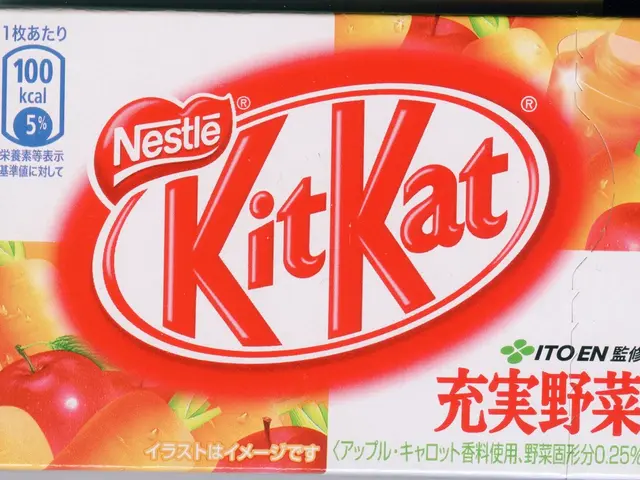Essential Factors Shaping AbbVie's Current Landscape
In the ever-evolving pharmaceutical landscape, AbbVie continues to shine, with its stock outlook remaining robust for mid-2025. This optimistic forecast is supported by strong growth from its immunology drugs, Skyrizi and Rinvoq, an expanding pipeline, and strategic operational investments.
Skyrizi and Rinvoq, AbbVie's key growth drivers, have been growing rapidly and have indications that collectively overlap with most of Humira's most important ones, performing better than expected. The combined sales of Skyrizi and Rinvoq are expected to surpass Humira's peak revenue of $21.2 billion this year and generate $31 billion in sales by 2027, $4 billion above their previous 2027 guidance.
The success of these drugs is particularly significant in the treatment of advanced non-squamous non-small cell lung cancer (NSCLC) cases, where approximately 25% have c-Met protein overexpression. Emrelis, a medicine for this condition, is the first approved NSCLC therapy that specifically targets c-Met protein overexpression.
AbbVie's pipeline efforts are crucial for preparing for the eventual loss of patent exclusivity for Skyrizi and Rinvoq. Rinvoq, for instance, could earn five new potential indications over the next five years, including the treatment of alopecia areata and vitiligo. Tavapadon, a potential medicine for Parkinson's disease, has shown strong data in phase 3 studies, furthering AbbVie's pipeline efforts.
The company's pipeline developments are promising, including a Phase 3 trial demonstrating a 79% risk reduction in blood cancer progression and expansions in R&D with a $195 million U.S. API manufacturing investment. This strategic move strengthens AbbVie's production capabilities domestically, helping to circumvent potential tariff-related risks and supply chain challenges.
AbbVie's Q2 2025 earnings beat expectations, driven primarily by these immunology drugs. Skyrizi revenues up 61.8% and Rinvoq up 41.2% year-over-year, helped offset Humira's declining sales and led to a 12.1% rise in adjusted EPS to $2.97. The company raised its 2025 revenue guidance to about $60.5 billion and adjusted EPS guidance to a range of $11.88–$12.08, reflecting confidence in sustained growth fueled by the immunology and neuroscience portfolios.
Despite a slight stock dip of 0.06% on August 18, 2025, trading volumes surged almost 38%, suggesting active investor interest. Some short-term volatility concerns may arise given elevated relative strength index (RSI) levels and acquisition speculation (e.g., potential Gilgamesh Pharmaceuticals deal). However, the stock is considered undervalued by some valuation models, with solid medium-to-long-term upside potential backed by strong fundamentals and pipeline progress.
In conclusion, AbbVie's stock outlook remains robust, underpinned by strong sales growth in Skyrizi and Rinvoq, ongoing pipeline advancement, expanded domestic manufacturing to mitigate tariff risks, and raised earnings guidance. This makes it an attractive investment opportunity for those focused on pharmaceutical growth opportunities in 2025.
- AbbVie's strong financial performance, with investors looking toward mid-2025, is driven by the robust sales of its immunology drugs, Skyrizi and Rinvoq.
- The success of these drugs extends to treating advanced non-squamous non-small cell lung cancer cases, with the first approved therapy specifically targeting c-Met protein overexpression being Emrelis.
- AbbVie continues to invest in its pipeline, with Rinvoq potentially gaining five new indications over the next five years, including treatment for alopecia areata and vitiligo.
- Strategic financial investments, such as a $195 million U.S. API manufacturing investment, strengthen AbbVie's production capabilities domestically, reducing potential tariff-related risks and supply chain challenges.




